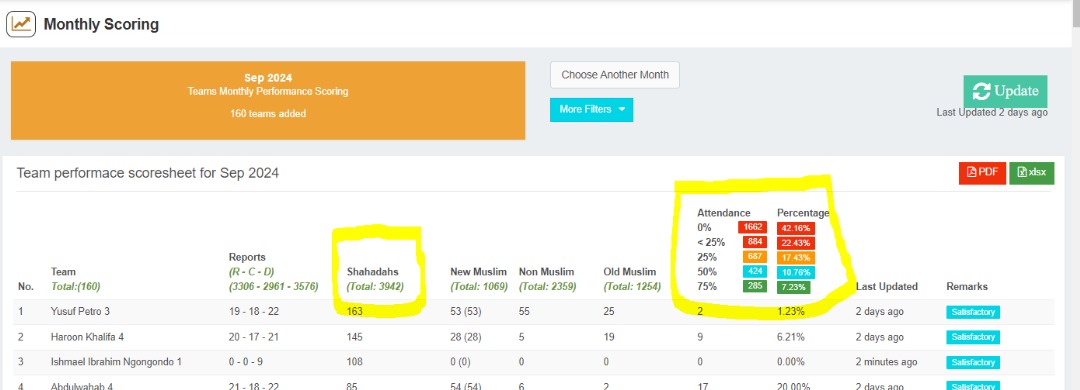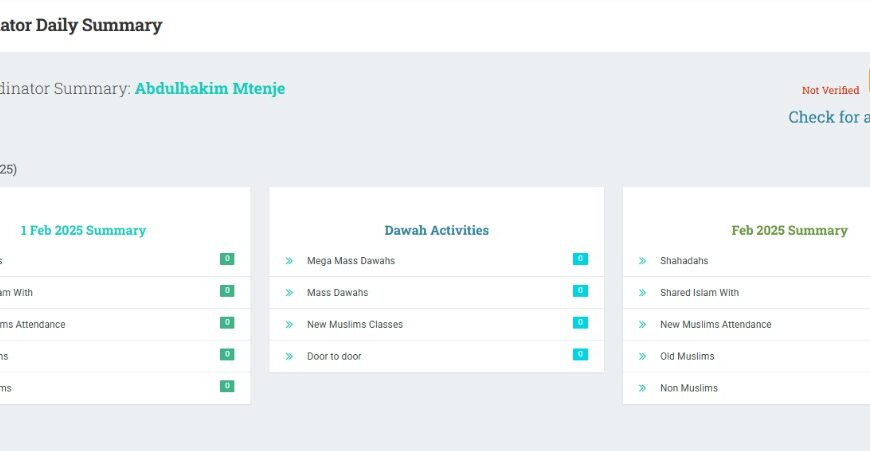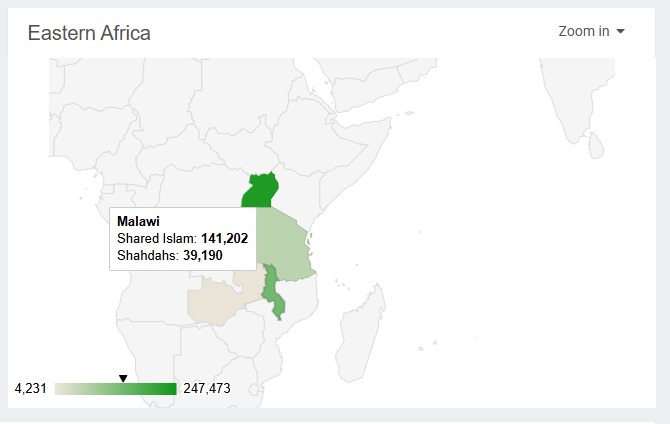At iERA, leveraging technology to streamline operations and enhance reporting capabilities is a cornerstone of our work. In September 2024, the iERA reporting system underwent several key updates to improve both functionality and data accuracy. These updates focused on addressing inconsistencies, introducing new features, and ensuring that our data systems reflect the true scope and impact of our efforts across different regions. This month’s updates also tackled several bugs that arose following the implementation of our mobile application.
Key System Updates and Bug Fixes
1. Shahadah Unmatching Fixes on Performance Board
One of the major updates this month addressed a critical issue with shahadah data mismatches on the monthly scoring board. Previously, the total number of shahadahs recorded was not aligning with the sum of new Muslim attendance levels in each country. This discrepancy stemmed from the fact that the system only counted shahadahs obtained through da’wah teams while excluding those achieved by individual coordinators and district heads.
With the recent fix, the system now accounts for all sources of shahadahs, ensuring accurate reporting across all categories. This improvement is essential as it provides a more comprehensive view of iERA’s impact, aligning shahadah counts with new Muslim attendance figures across different countries and regions.
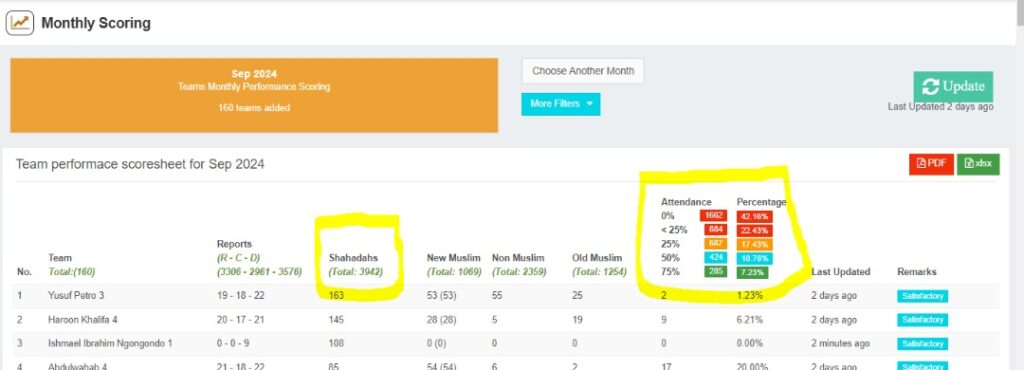
2. Outreach Specialist (OS) Activation and Deactivation Update
The reporting system previously encountered challenges in accurately reflecting the number of active Outreach Specialists (OS). In cases where an OS was removed from a team, the system failed to deactivate their account, resulting in inflated counts of active OSs. This issue impacted key performance metrics, particularly when calculating the number of shahadahs per OS in each country.
The September update now ensures that the system automatically deactivates an OS when they are removed from a team, unless they are reassigned. This feature provides country admins with accurate data on active Outreach Specialists, improving the reliability of country-level and district-level reporting.
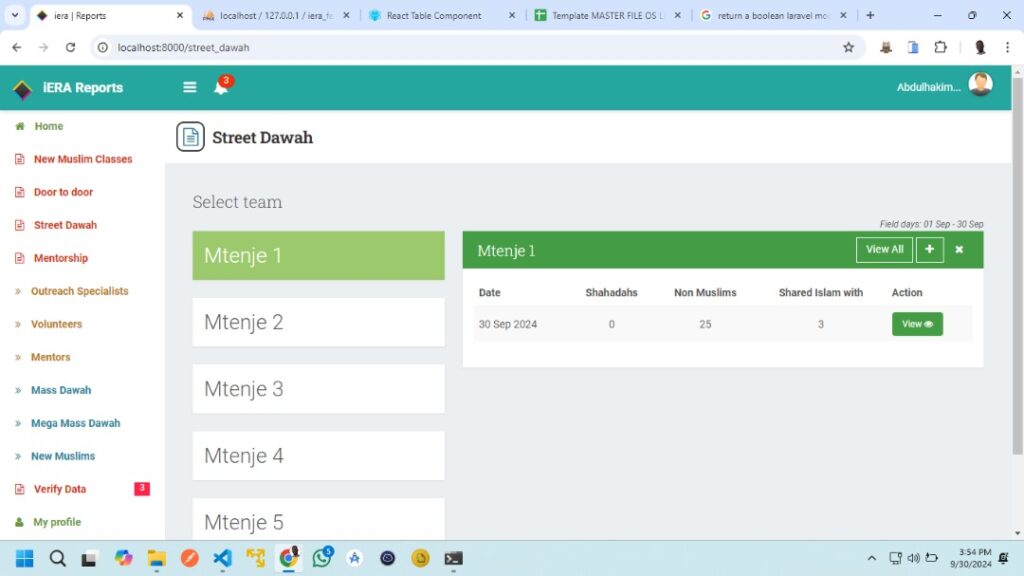
3. Major Update: Resolving Unmatched and Negative Attendance Numbers
One of the most significant updates in September was the overhaul of attendance calculations for new Muslims, old Muslims, and non-Muslims. Before the update, the monthly report and performance board produced conflicting data on new Muslim attendance, largely due to differences in calculation methods. The monthly report based attendance on the number of days a new Muslim was expected to attend, while the performance board calculated attendance based on actual class days conducted by da’wah teams.
In some instances, inconsistencies even led to negative attendance numbers for old Muslims and non-Muslims. The new update standardizes attendance calculations across all reporting modules, ensuring consistency from the coordinator level to the global admin level. This change not only improves data accuracy but also enables more meaningful analysis of iERA’s work in different regions.
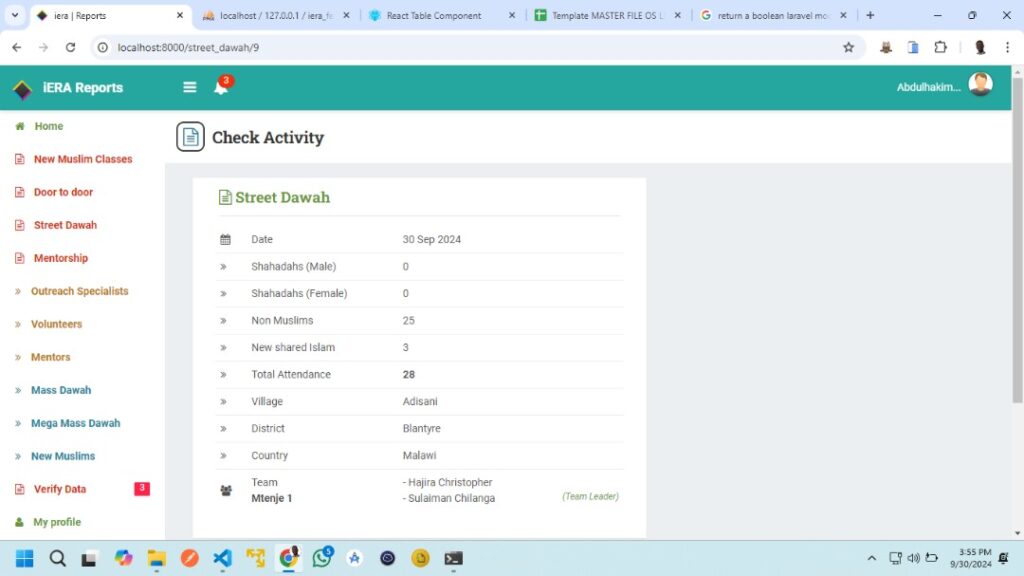
4. Street Dawah Integration
For the first time, iERA’s reporting system now includes a dedicated module for tracking street dawah activities. Previously, shahadahs obtained through street dawah were categorized under door-to-door efforts, making it difficult to separate and analyze the impact of street da’wah events. The new module allows coordinators to input and track shahadahs specifically from street da’wah initiatives, providing more detailed reporting and insights.
While the data input functionality for street dawah has been implemented, integration of this data into summaries for other accounts is scheduled for completion within the coming weeks. This enhancement will provide a clearer picture of iERA’s outreach efforts in public spaces and help differentiate between various da’wah approaches.
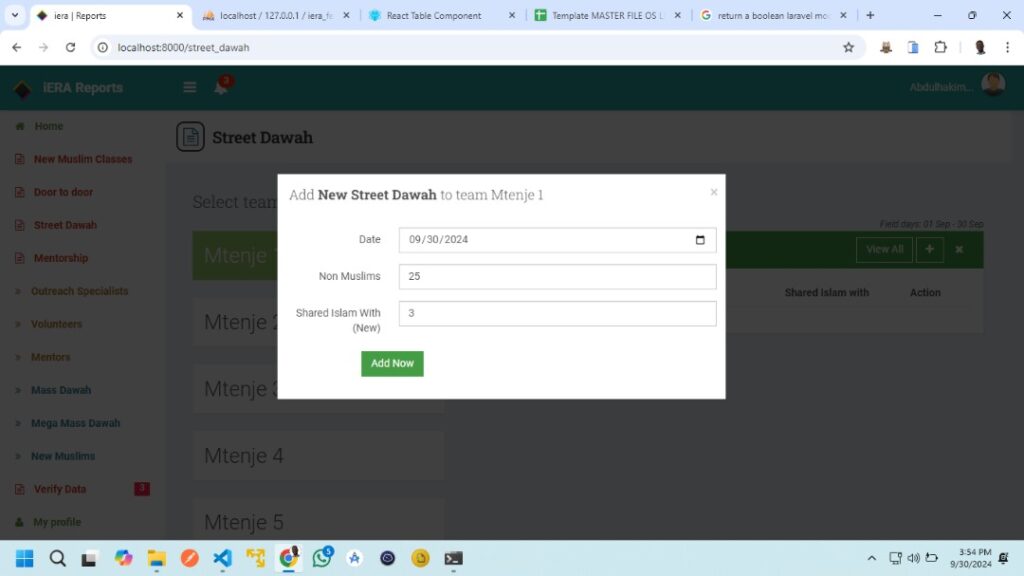
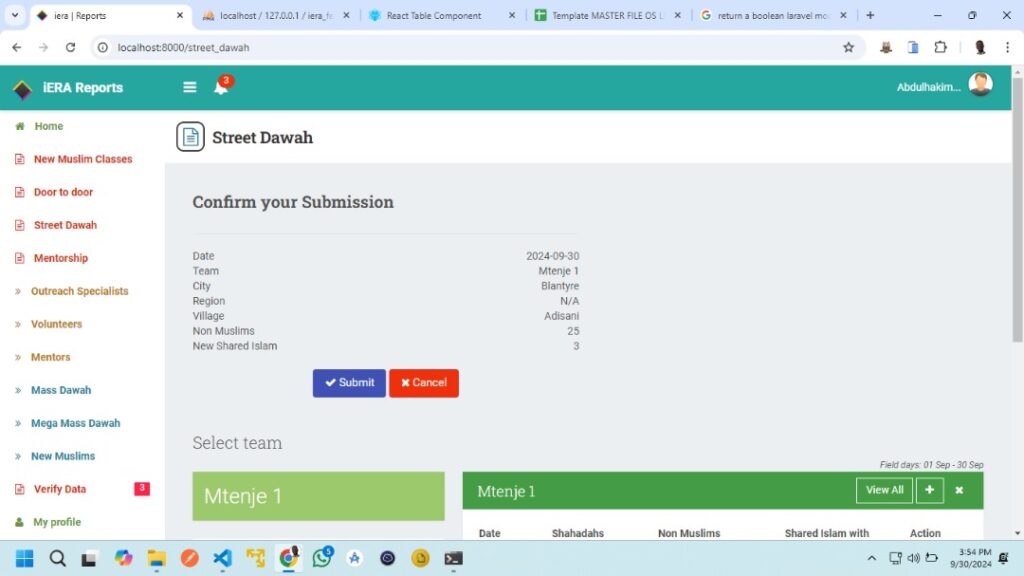
Planned Enhancements for October 2024
As we move into October, iERA is committed to continuing its efforts to improve the reporting system and further streamline our technological processes. Upcoming updates include:
- Full Integration of Street Dawah: Street dawah data will be fully reflected in all accounts, allowing for comprehensive tracking and analysis.
- Enhanced Global Admin Dashboard: A more robust dashboard will provide global admins with better oversight of performance metrics and data trends.
- New Muslim Class Swalaat Photo Upload: Coordinators will be able to upload and share photos from new Muslim classes, particularly focusing on Swalaat (prayer) activities, to foster a sense of connection and progress.
- Enhanced District Head Performance Board: The performance scoring board for district heads will be upgraded to better track performance metrics at the district level.
- Zero Attendance Flagging for New Muslims: A new feature will flag new Muslims with zero attendance in red, ensuring coordinators and admins can quickly identify individuals who may need additional support to engage with classes.
The Role of Technology in iERA’s Mission
By continuously refining our digital tools and ensuring accurate data collection and reporting, we are better equipped to assess our impact, identify areas for improvement, and optimize our outreach strategies.
These system improvements not only help iERA teams and coordinators but also enable us to deliver more transparent, reliable reports to our supporters and stakeholders. As we move forward, we remain dedicated to enhancing our technological capabilities to support the global da’wah effort, ensuring that every shahadah and every new Muslim is counted and supported in their journey towards deeper faith.
Stay tuned for more updates as we continue to expand and refine the iERA reporting system, driving our mission forward through innovative and reliable technology solutions.

